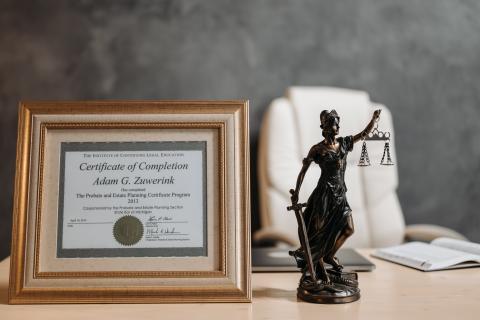The Impact of Extracurricular Activities on Academic Success
Jun 02,2023
The Role of Extracurricular Activities, Clubs, and Societies in Fostering Academic Success and Personal Development
Executive Summary
This white paper presents a thorough examination of the influence of extracurricular activities, clubs, and societies on academic success and personal development, drawing on a comprehensive body of research. These activities, when well structured and balanced with academic commitments, can provide students with a broad range of benefits including enhanced academic performance, personal growth, and the development of key life skills such as leadership, teamwork, and time management. The paper concludes with recommendations on how educational institutions can optimize the integration of these activities into their curriculum.
Introduction
Extracurricular activities, clubs, and societies constitute an integral part of a well-rounded educational experience. These activities encompass various interests and disciplines, ranging from sports, arts, and music to academic clubs and honor societies, providing students with the opportunity to explore their interests outside the formal curriculum.
The Impact of Extracurricular Activities on Academic Success
Research shows a positive correlation between participation in extracurricular activities and academic performance. Students involved in these activities often show improved grades, higher educational aspirations, increased college enrollment, and reduced absenteeism.
Improved Grades: Participating in extracurricular activities often enhances academic performance. It offers students practical skills such as time management, problem-solving, and critical thinking, which are transferable to their academic work.
Higher Educational Aspirations: Students who participate in extracurricular activities often have greater educational aspirations. These activities provide exposure to new interests and possibilities, which can inspire students to aim higher in their academic pursuits.
Increased College Enrollment: There is a proven correlation between participation in extracurricular activities and college enrollment rates. The skills, experiences, and relationships gained through these activities can enhance students' applications and increase their chances of securing admission to higher education institutions.
Reduced Absenteeism: Participation in extracurricular activities can result in lower rates of school absenteeism. Students who are engaged in school activities beyond the classroom tend to be more motivated to attend school regularly.
The Role of Extracurricular Activities in Personal Development
Extracurricular activities contribute significantly to personal development, fostering essential life skills and enhancing students' overall well-being.
Life Skills: These activities can develop skills such as leadership, teamwork, time management, problem-solving, and resilience. Students learn to navigate complex group dynamics, coordinate tasks, and balance different commitments, thereby enhancing their life skills.
Social and Emotional Development: By providing opportunities for interaction and collaboration, extracurricular activities can contribute to students' social and emotional development. Students learn to form relationships, express themselves, handle different perspectives, and manage conflicts.
Well-being and Mental Health: Participating in extracurricular activities can promote students' mental health and overall well-being. These activities offer a healthy outlet for stress and a sense of belonging, which can enhance students' mental health.
Recommendations
Given the substantial benefits of extracurricular activities, educational institutions should:
-
Ensure Accessibility: Schools and colleges should make sure that a diverse range of extracurricular activities is available and accessible to all students, regardless of their socio-economic status.
-
Promote Balance: Educational institutions should encourage students to maintain a healthy balance between academic and extracurricular commitments. This could involve providing guidance on time management and avoiding over-commitment.
-
Provide Recognition: More schools and colleges should recognize and value participation in extracurricular activities as an integral part of the educational experience.
Conclusion
Extracurricular activities, clubs, and societies have a substantial positive impact on academic success and personal development. Therefore, it is critical for educational institutions to encourage and support student participation in these activities, ensuring they form a vital part of a comprehensive, well-rounded education.
HonorSociety.org is dedicated to recognizing and promoting excellence in academics and community service. We believe that engagement in extracurricular activities plays a pivotal role in building a vibrant, successful academic community and fostering the personal and academic development of students.





